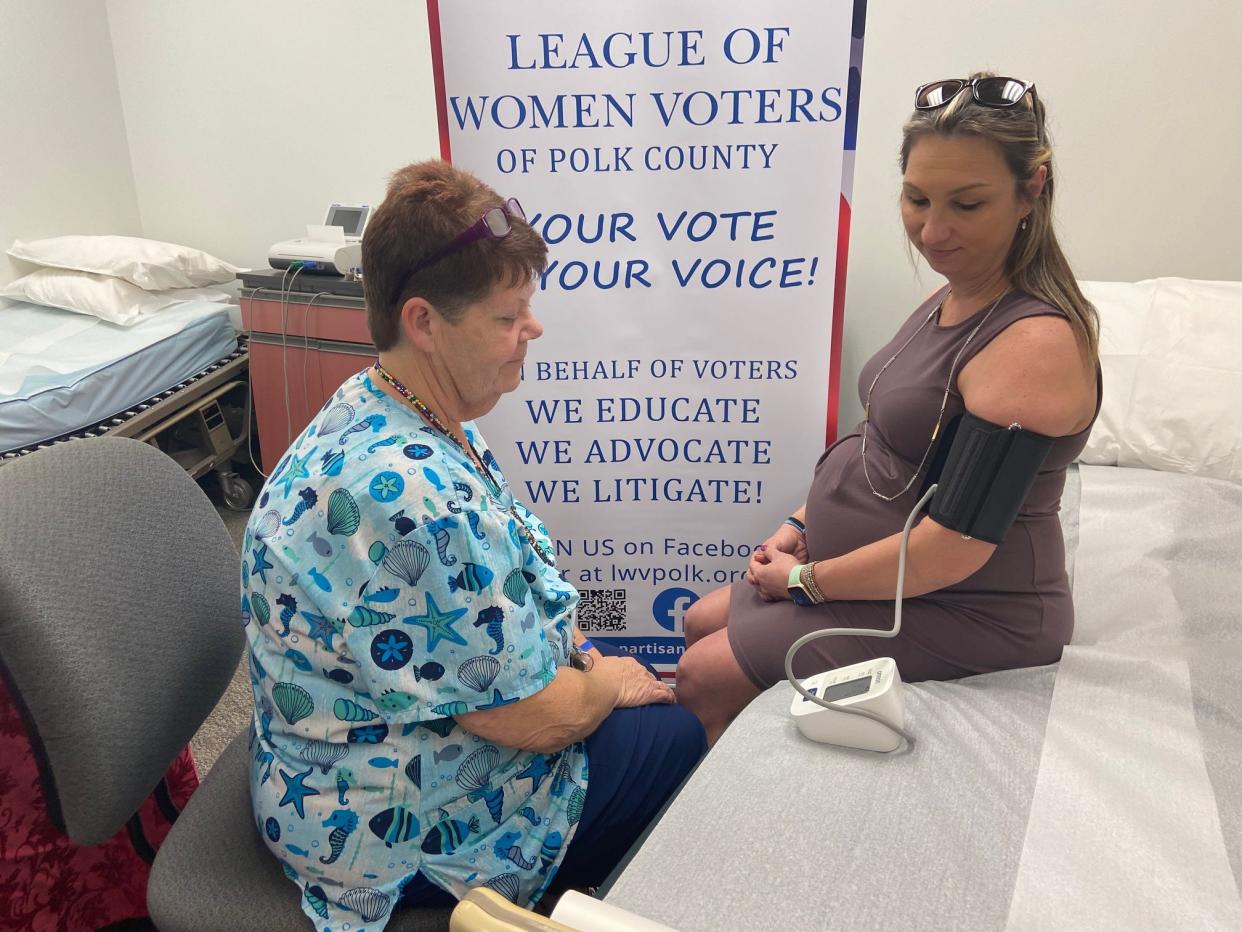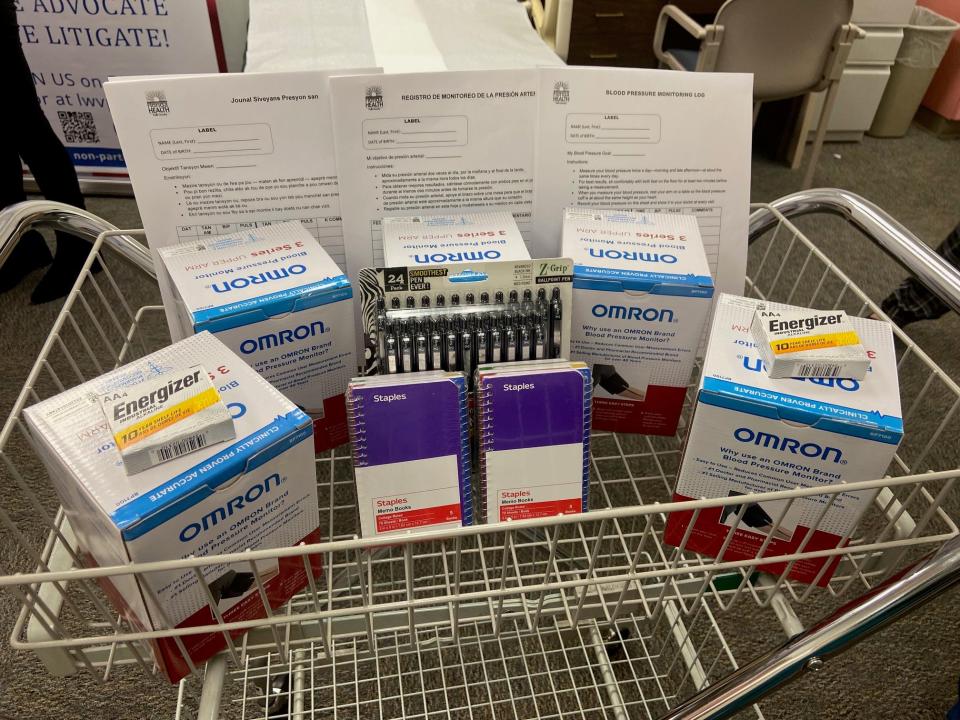Moms with Monitors: Health department offers blood-pressure monitors to at-risk moms

Pregnant women with risky, health-threatening conditions arrive regularly at the Florida Department of Health Polk County, with high blood pressure and diabetes two of the chief threats.
At least 1 in 10 of its pregnant patients have high blood pressure, said registered nurse Shelly Benson, senior community health nursing supervisor.
High blood pressure sometimes signals preeclampsia, a rare but dangerous complication that can result in premature birth, bleeding and other serious issues.
Since elevated blood pressure often doesn’t have symptoms the average patient would notice, it can go undetected unless at-risk women monitor their pressure regularly.
That’s one reason Benson welcomes a recent collaboration between DOH and the League of Women Voters of Polk County.
Just normal aging? Maybe not. Forgetfulness could be a sign of mild cognitive impairment
'They think they just need new glasses'Wet macular degeneration treatments are expanding
Amid COVID waveFewer Polk County seniors seek latest booster vaccination amid most recent COVID-19 wave
LWV members and T. Mims Corp. funded 156 blood pressure monitors for DOH nurses to give high-risk pregnant women.
“It took a while to get all the steps in place, but it’s starting with a bang,” said Paula Mims, chair of the LWV Healthcare Action Team, calling its Moms with Monitors program a “small cog in the large wheel of health equity.”

The Moms with Monitors program is based on a pilot program by the Palm Beach County league and the T. Leroy Jefferson Medical Society.
“We’re very glad to have them,” Benson said during a mid-January celebration of the kickoff of Moms with Monitors late last year.
“We’ve run into so many problems with preeclampsia and post-partum (after birth) preeclampsia.”
Being able to send monitors home, she said, lets nurses show at-risk patients how to check their pressure regularly and know which levels are potentially dangerous.
She said they appreciate being “able to tell someone ‘If it shows this and this, go to the hospital. If it says this and this, come back here.’”
The department will give the monitors to prenatal patients with diabetes, obesity and other factors making them high risk.
Nine had been given out by Jan. 17 under the Polk Health Equity Plan. Mims is a member of the task force related to that plan.
The plan's goal is to distribute 100 by June 30 as part of its effort to reduce low birthweight and preterm births.
“I’m very thrilled with this collaboration,” said Dr. Joy Jackson, director for Polk DOH.
Benson demonstrated the monitors by checking the blood pressure of Emily Crain, president of LWV Polk, who is due to deliver this month.
Crain said she was surprised to find her pressure was higher than usual.
Crain isn’t a Health Department patient. She doesn’t have an issue with access to health care.
That isn’t the case for many who rely on the Health Department.

“Most of our patients are unfunded and were unable to get Medicaid,” Benson said.
They can have difficulty affording a blood pressure monitor or not realize its importance for high-risk patients.
Many of the department’s pregnant patients who have diabetes can’t afford strips to monitor their blood glucose level, Benson said.
Polk County reported 11.2% of babies born preterm, less than 37 weeks, in 2021. Florida was slightly lower at 10.9%, according to the state’s FLHealthCharts.
Polk County and Florida had 9% of total live births classified as low birth weight, less than 5.5 pounds, in 2021.
Income, racial differences and age are factors in assessing risk.
Polk County’s percentage of Black babies born weighing less than 5.5 pounds was 14.8, compared with 7.5 for white babies, in 2021.
Its percentage of Black babies born before 37 weeks was 15.9, compared with 10.1% for white babies.
Black infants in Polk are more likely than white infants to die before their first birthdays. Black women are more likely than white women to have delivery complications, the department said.
Studies have shown an association between increased risk of preterm birth and families who have insufficient household income, according to Healthy People 2030, a federal 10-year public health plan.
Benson and Mims said they’d welcome additional partnerships to address problems affecting pregnancies and maternal health.
“I’m very passionate about this issue and about attempting to collaborate on solutions,” Mims said.
Robin Williams Adams can be reached at robinwadams99@yahoo.com
This article originally appeared on The Ledger: Moms with Monitors program gives at-risk moms a valuable tool

